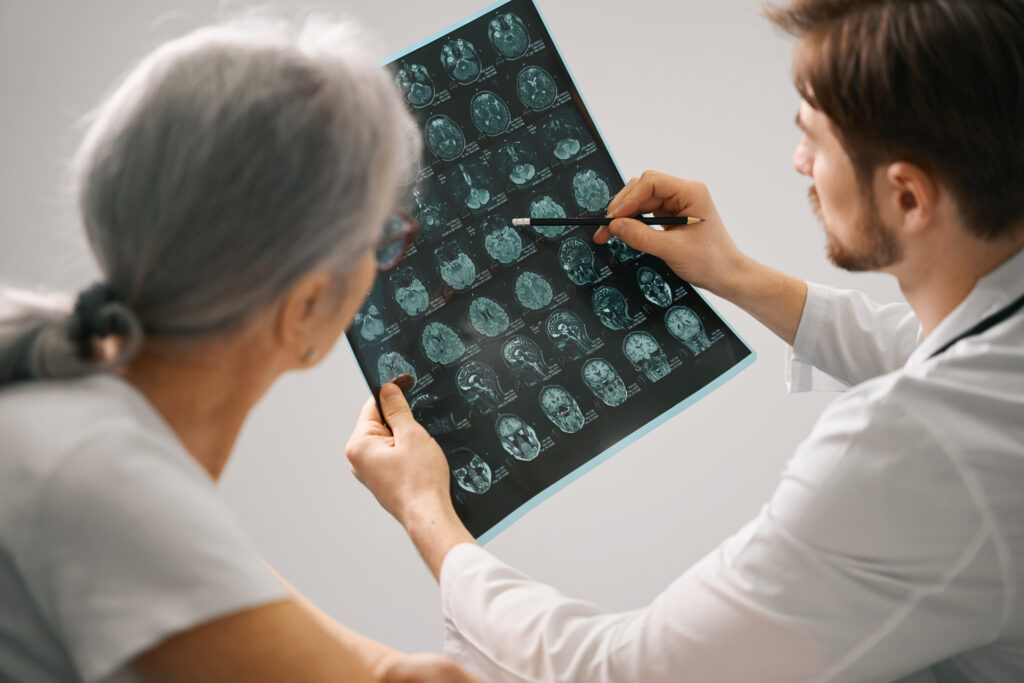Brain technology company Darmiyan has received De Novo US Food and Drug Administration (FDA) approval for its first-in-class dementia test BrainSee.
BrainSee is a software as a service (SaaS) platform powered by AI that can assist physicians in determining the prognosis of patients who have amnestic mild cognitive impairment (aMCI). BrainSee is designed to provide early screening and risk stratification, aiming to delay the onset of dementia.
The test uses a combination of standard clinical brain MRI and cognitive assessments to predict the likelihood of progression from aMCI to Alzheimer’s dementia within five years.
BrainSee received FDA Breakthrough Device designation in 2021.
Over 10 million Americans and more than 100 million patients worldwide are currently affected by aMCI.
aMCI is characterized by noticeable deficits in memory function that are greater than what would be expected for an individual’s age and education level, but not severe enough to significantly interfere with daily life. This makes it distinct from the more severe memory loss seen in dementia, such as Alzheimer’s disease.
In aMCI, the primary symptom is memory impairment. Unlike typical age-related forgetfulness, memory loss in aMCI is more pronounced and often noticed by the individuals themselves or their close contacts.
aMCI is considered a transitional stage between normal aging and more serious conditions like Alzheimer’s disease. Not everyone with aMCI will progress to Alzheimer’s, but they are at a higher risk compared to those without any cognitive impairment.
XTALKS WEBINAR: Case Study: EEG Digital Biomarkers in Neuropsychiatric Clinical Studies
Live and On-Demand: Thursday, February 15, 2024, at 12pm EST (9am PST)
Register for this free webinar to learn how to leverage neuroassessment platforms to advance novel therapeutics focused on neuropsychiatric conditions.
BrainSee’s Breakthrough Device designation was based on results from a 2020 study in which BrainSee demonstrated impressive accuracy and reliability in identifying changes associated with Alzheimer’s disease. The device exhibited a remarkably high level of test-retest reliability (correlation coefficient of 99.5 percent).
“Our vision is to redefine brain health screening and monitoring standards and impact the lives of patients and their family members in a meaningful way. BrainSee is the first product of this vision, backed by our solid technological infrastructure that is capable of driving further transformations and scalable innovations in the brain health landscape,” said Dr. Padideh Kamali-Zare, founder and CEO of Darmiyan in a press release announcing the approval.
The technology behind BrainSee is based on over 40 years of advanced brain science and incorporates whole-brain image analysis and medical AI, said Darmiyan.
BrainSee generates an objective score, on a scale from 0 to 100, with a lower score indicating a positive prognosis. This score is intended to help physicians assess the likelihood of a patient’s progression from aMCI to Alzheimer’s dementia.
Related: Leqembi (lecanemab) Granted Accelerated Approval by the FDA as Alzheimer’s Disease Treatment
An important aspect of BrainSee is its ability to integrate into clinical workflows, providing same-day test results. This not only aids in timely and personalized treatment for patients at high risk, but also supports annual monitoring for those at lower risk.
BrainSee’s advanced screening and categorization process offers tailored care options for patients with aMCI who are at a heightened risk of progressing to Alzheimer’s dementia. This approach aims to postpone the onset of dementia. It also provides peace of mind to those less likely to progress, potentially decreasing reliance on expensive and invasive procedures and easing the financial and emotional strain often associated with such conditions.
Darmiyan said BrainSee “shifts the paradigm in aMCI workup from biomarker-based methods that have limited real-world capabilities due to their invasiveness, non-specificity, cost and inaccessibility, to non-invasive and actionable forecasts of future improvement or progression.”
The Alzheimer’s disease market size was valued at $2.2 billion in 2020 and is projected to reach $13.7 billion globally in 2030 at a compound annual growth rate (CAGR) of 20 percent, according to GlobalData. A major part of the growth is expected to be driven by novel drug launches.












Join or login to leave a comment
JOIN LOGIN